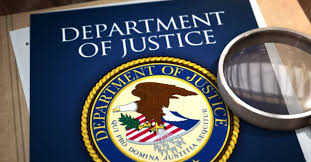Coinbase Report: The number of top academic students studying cryptocurrency courses doubled in 2019 compared to last year
A study published by Coinbase on Wednesday showed that academic interest in cryptocurrencies and blockchains is growing across the board.
In this year's report, Coinbase outlines the growing interest in students' interest in cryptocurrencies and the fact that more and more courses are focused on blockchain, cryptocurrency or bitcoin.
Main findings:
- 56% of the world's top 50 universities now offer at least one course on cryptocurrency or blockchain, compared with 42% in 2018;
- Compared to 2018, the number of students participating in cryptocurrency or blockchain courses doubled in 2019;
- Only about 30% of cryptocurrency and blockchain courses involving computer science, and the rest of the courses involve the Department of Law, Humanities, and Economics;
- Cornell University ranked first in the 2019 cryptocurrency education rankings;
In the 2017 school year, Cornell University undergraduate Joseph Ferrera wanted to learn more about cryptocurrencies and blockchains, but at the time there were few courses in the school, so he and a classmate decided to set up a Cornell area. Blockchain interest clubs, they asked the computer science professor, cryptocurrency and contract initiative (IC3) co-director Emin Gün Sirer to advise them.
- Anti-Ruibo selling sentiment is getting worse and stronger, investors want to fork and take over XRP
- Britain's Brexit "great change", bitcoin but "failed" fell below 10,000 US dollars
- Bakkt will open Bitcoin recharge service to users on September 6 to prepare for futures trading
Soon, the club’s student membership grew to 120.
“I expect about 80%-90% of the club members will be quite weird computer science students,” Professor Sirer said. “But I was too wrong, I want to say that up to 20% – 30% of the members From the Department of Computer Science, the rest are from other departments."
Unlike many other new technologies (and established industries), cryptocurrencies and blockchains quickly show their potential to reshape multiple academic and professional disciplines, including: computer science, law, economics, finance, Social sciences, etc., and the list continues to grow. As more and more professional students express their interest in learning in this emerging field, some of the best universities in the world are exploring how to meet the growing demand to satisfy students' curiosity about this new technology. And create opportunities for their graduates.
"The interdisciplinary nature of blockchain makes this field very different from any traditional field," said Dawn Song, a professor of computer science at the University of California, Berkeley.
Therefore, in schools around the world, legal scholars are working hard to deal with ethical and regulatory structures, economists are exploring the potential of borderless currencies, computer scientists are building new applications, and social scientists are studying the overall impact of cryptocurrencies on society. .
At the Cornell Blockchain Club, all of this is happening.
“Business schools, hospitality schools, medical schools, and even agricultural colleges have a lot of interest in us,” said Ferrerra, a graduate of Cornell University’s School of Hospitality Management. He is now a business manager at Ava Labs. “We have With so many professors coming into contact with more knowledge about blockchains and exploring how they can be applied to their fields, it is really cool to join such a community."
2019 cryptocurrency education rankings: Cornell University ranked first

In this year's annual research report, Coinbase expanded its methodology. To assess the current state of cryptocurrencies in higher education, Coinbase reviewed the curriculum catalogues of the top 50 universities in the US in the US News and World Report, with a research focus of 2019. Courses available to undergraduate and graduate students, and information on these courses is available online.
This year, 56% of the world's top universities have at least one course on cryptocurrency or blockchain, and in 2018, this ratio was 42%.
Among them, computer science courses are still the most common courses, accounting for 32.2%, while the total proportion of financial, business and economic courses is 19.8%, and the total proportion of law school courses is 10.7%.

In addition, this year Coinbase also analyzed a number of non-curricular projects, such as the official research program and the student-managed cryptocurrency club, which also tracked research citations involving blockchain in 50 schools. After a comprehensive assessment, Coinbase listed a list of 2019 cryptocurrency education rankings.

In the United States, such universities as MIT, New York University, Stanford University, and the University of California at Berkeley were selected for this ranking. Cornell University, which is the best in other universities, has offered 14 courses on cryptocurrency and blockchain this year (only nine in 2018), and its IC3 team brings together research from top universities around the world. personnel.
Last year, Stanford University opened the largest number of cryptocurrency and blockchain courses (10), followed by Cornell University (9) and the University of Pennsylvania (6). In 2019, Stanford University offered eight courses, and the University of Pennsylvania offered only two courses.
In the 2019 cryptocurrency education rankings, four international schools were selected for the top 10, including the Swiss Federal Institute of Technology in Lausanne and the University of Copenhagen, Denmark. Professor Sirer of Cornell University pointed out that students are increasingly considering the fragmentation of the financial system as a global problem that needs to be addressed:
"For this generation, the idea that you can't easily send dollars to the world is a very strange limitation."

The number of students participating in blockchain courses has doubled compared to last year
According to research, students' distrust of the current financial system is fueling their growing curiosity about cryptocurrencies. The results show that two-thirds of students describe the current financial system as “unstable,” “inefficient,” “unequal,” or “slowly moving.”
34% of the students surveyed expressed interest in participating in cryptocurrency or blockchain courses, compared to 28% in 2018. The number of students who have taken the subject is doubled compared to the number of reports in 2018.

“Of course, some students interested in this topic will feel distrustful of the current banking system,” said Cesare Fracassi, a computer science professor who led the University of Texas at Austin’s McCorbles School of Business. The blockchain initiative of the 13th list, "Therefore, they want to create a decentralized alternative system for decision-making processes. These people are more idealistic. Others may be more pragmatic, they use this technology to improve Interest in the way companies are performing and efficiencies."
There is no doubt that Coinbase's research shows that students are increasingly interested in learning how blockchain and encryption can benefit people around the world. From 2018 to 2019, the proportion of students with a learning interest in blockchain and “social justice” rose from 13% to 20%. At the same time, students' interest in “security” and “future application and growth” has declined over the past year.
In the past few years, the University of California at Berkeley has been running a popular course called Blockchain, Cryptography Economics, and Technology, Business, and Legal Futures. The school has opened the course through three separate departments (the School of Engineering, Business and Law).
“Technology, like distributed systems and software security, and of course cryptography, requires expertise,” said Berkeley’s Song. “But because this is a very new technology, there are many open aspects of regulation. Sexual issues. Moreover, it also has the potential to bring new business models."
At the National University of Singapore, business students studying the Financial Regulations in the Digital Age can learn how technological developments, including blockchain, can change financial and regulatory issues.
Stanford undergraduate students are exploring the potential of the blockchain to create a more equitable economic system in the category of “justice + poverty innovation”.
The MIT Sloan School of Management offers a course on “Borderless Business”, with a special focus on blockchain technology. This fall, the Massachusetts Institute of Technology's Digital Money Initiative (DCI) will also offer a blockchain ethics course that will bring together a wide range of scholars from Harvard Law School.
Oceane Boulais is a graduate student at the Massachusetts Institute of Technology, and she will be the teaching assistant for the blockchain ethics class this fall.
Looking to the future
In fact, you don't have to be enrolled in an elite university to become a full-time student to learn cryptocurrency courses. The MIT Sloan School of Management offers a six-week online course for professionals, and the University of California at Berkeley offers through the online learning center edX. A similar online course called Blockchain Fundamentals. Other learning platforms, including Udemy, Coursera, and Udacity, also offer a range of cryptocurrency and blockchain courses.
Ferrerra, co-founder of Cornell Blockchain Club, said:
“After entering the industry, students can help control it. This power is what the industry needs. If you go to a big bank or a well-known consulting firm, you will know what you can get. With cryptocurrency, You can shape this field and become a leader."
We will continue to update Blocking; if you have any questions or suggestions, please contact us!
Was this article helpful?
93 out of 132 found this helpful
Related articles
- Can Bitcoin replace gold, currency, and financial systems?
- US traders push the bitcoin bull market to rebound, Asian traders still rely on wait and see
- Bitcoin lost $10,000, and the trend is finally here.
- Viewpoint | Blockchain don't pass the pass?
- The fundraising of $1.7 billion has been low-key, and will the upcoming Telegram blockchain be supervised?
- BTC fell below 10,000, 1.5 billion overnight evaporation, CME is the culprit?
- Getting started with blockchain | What are the stable currencies USDT and Libra? what's the effect?






